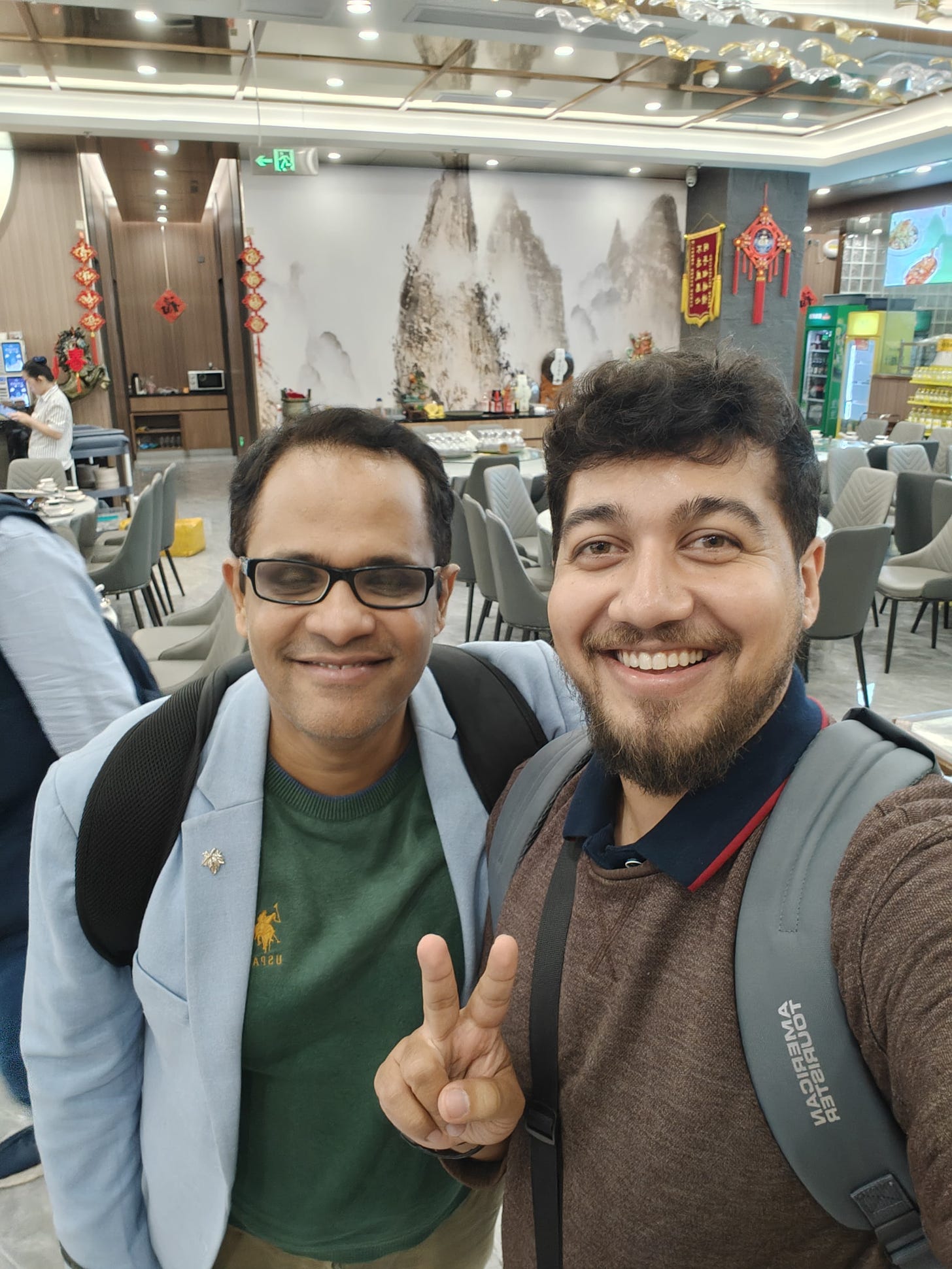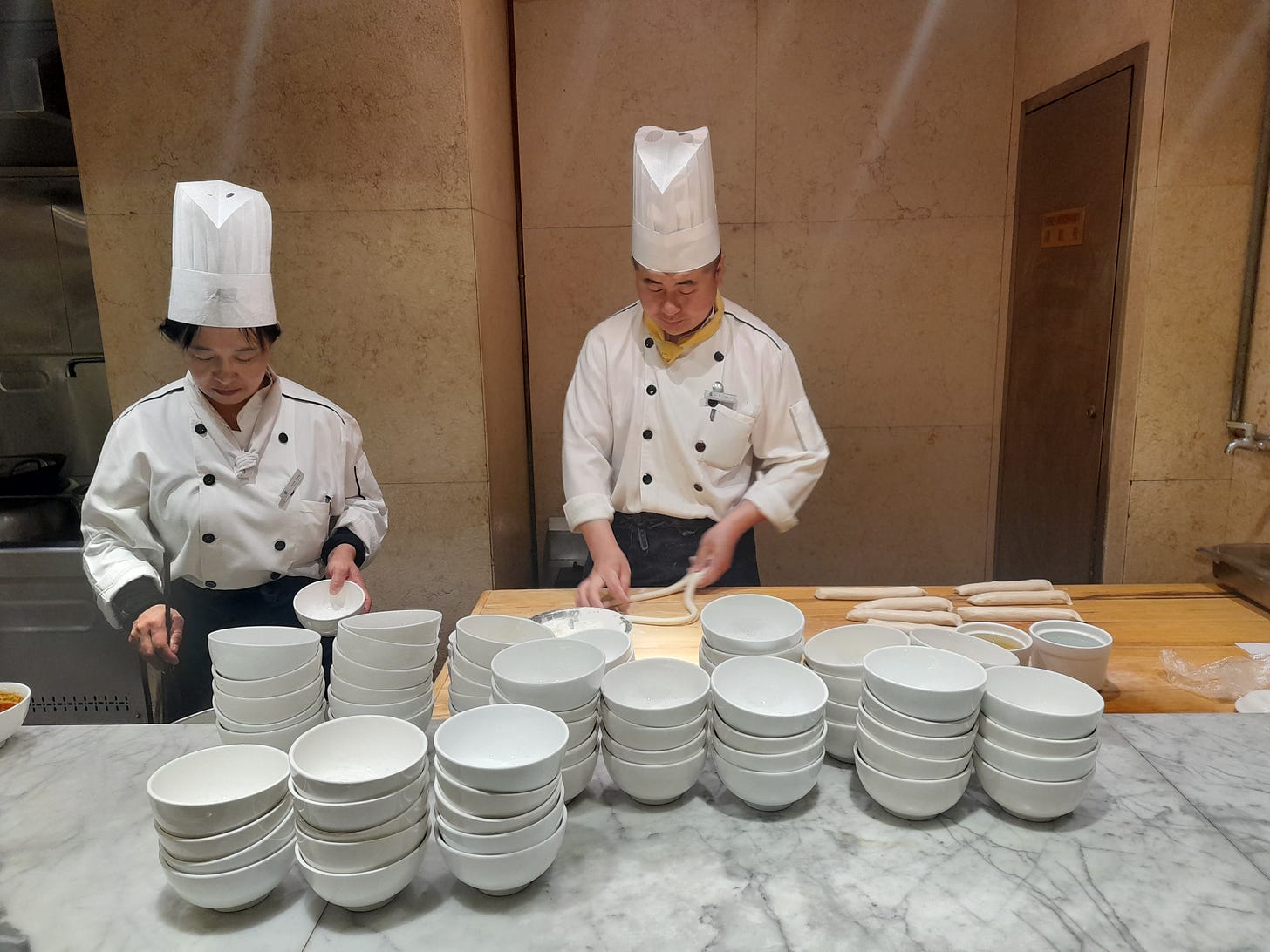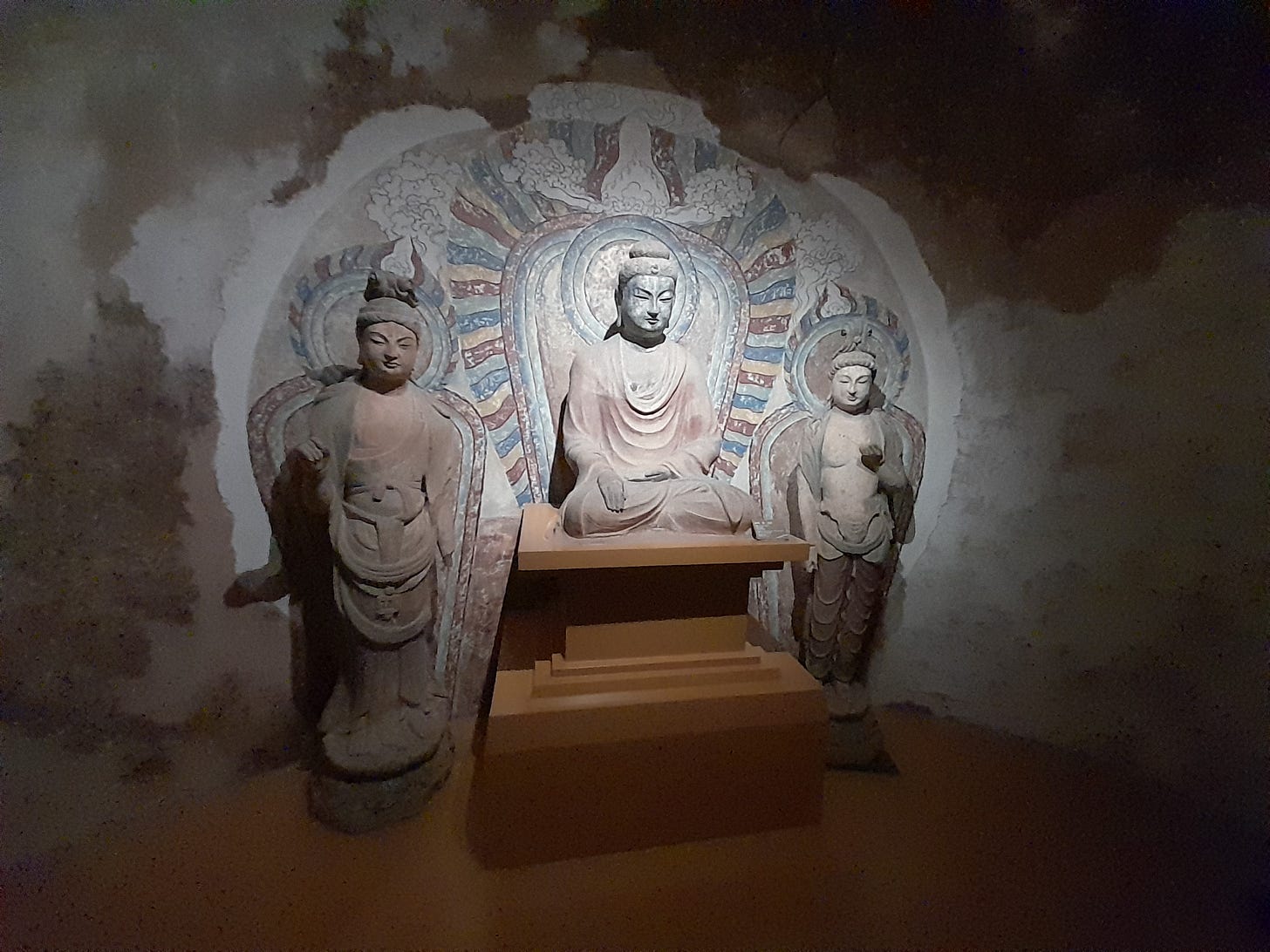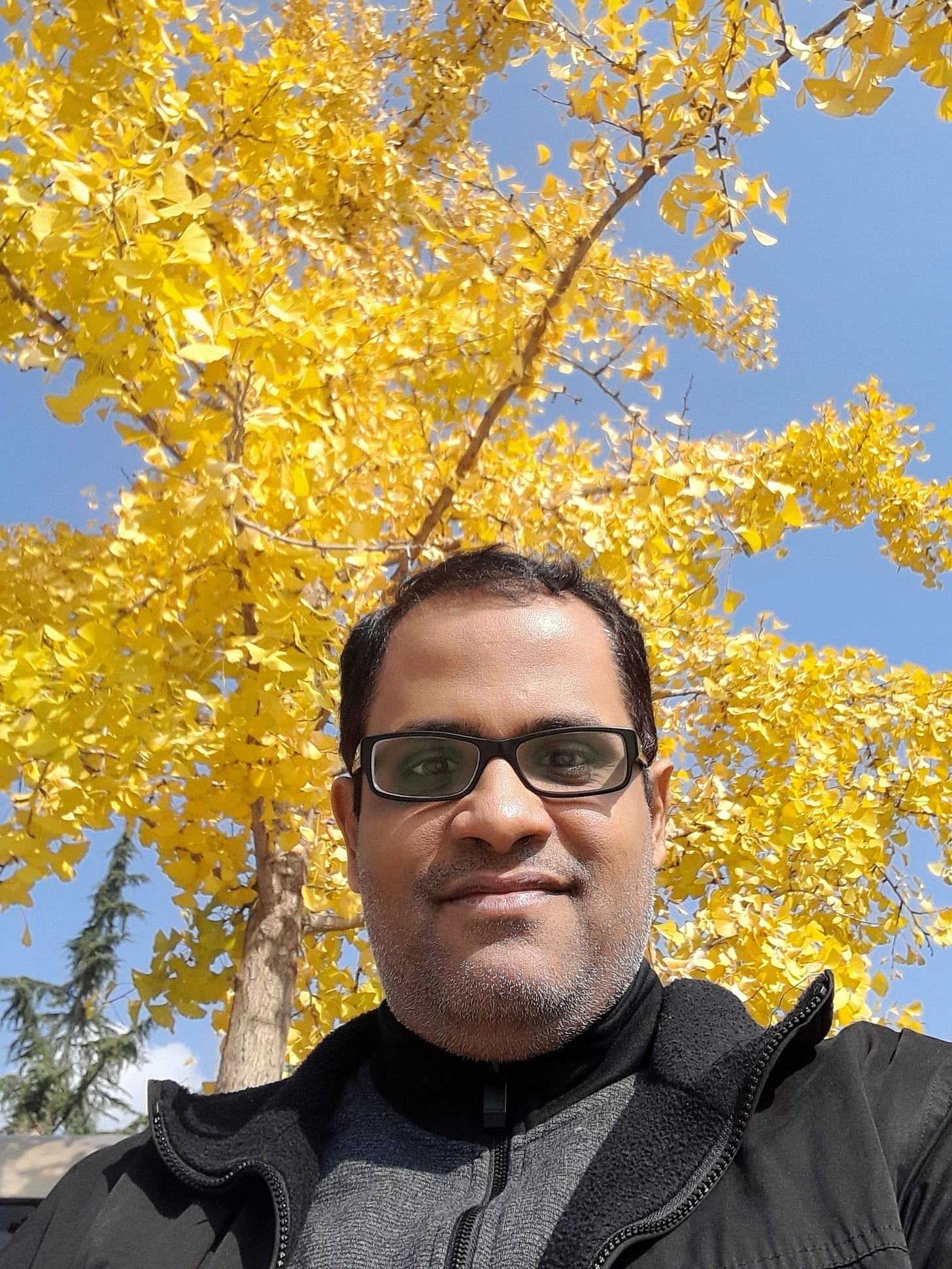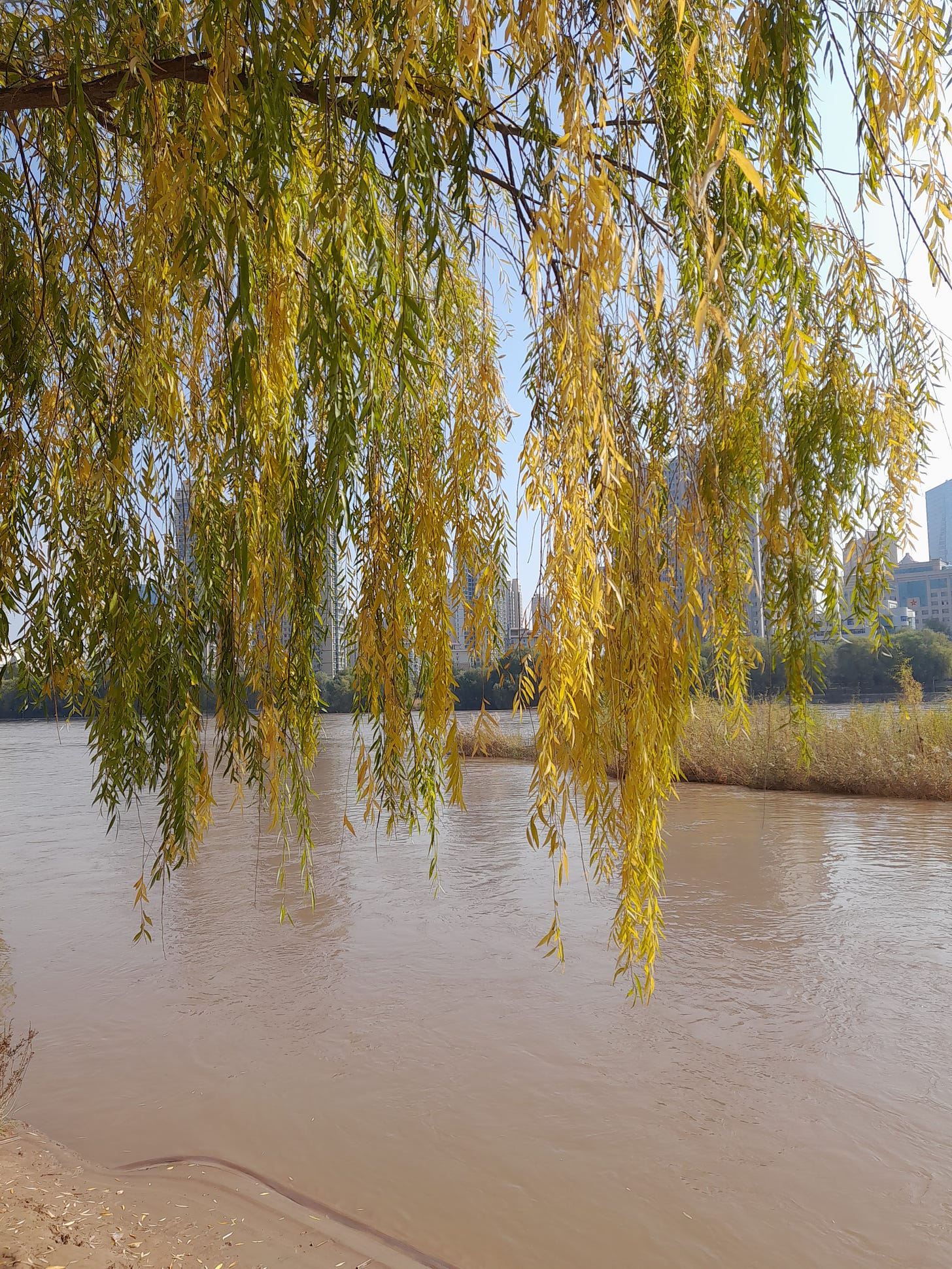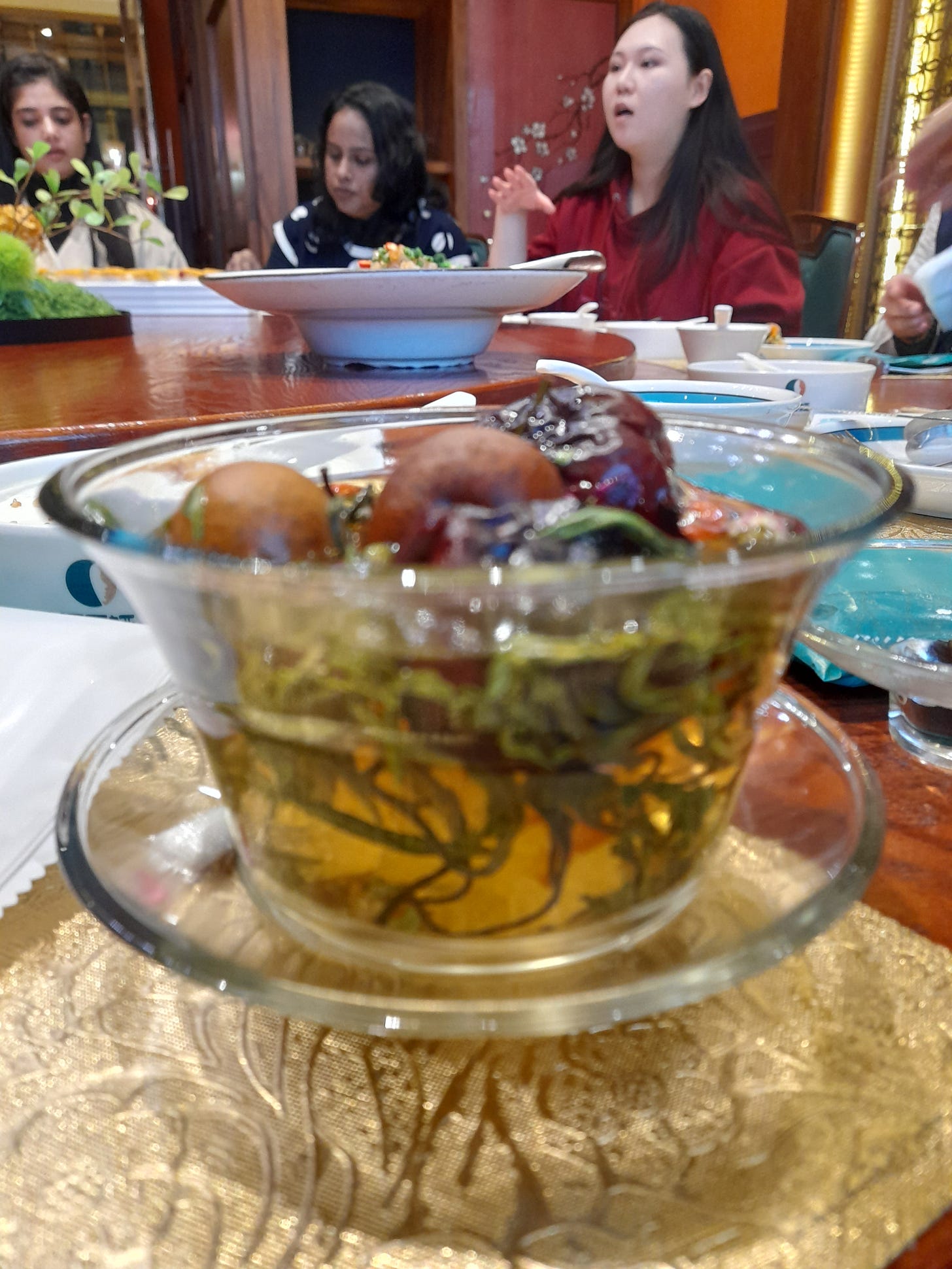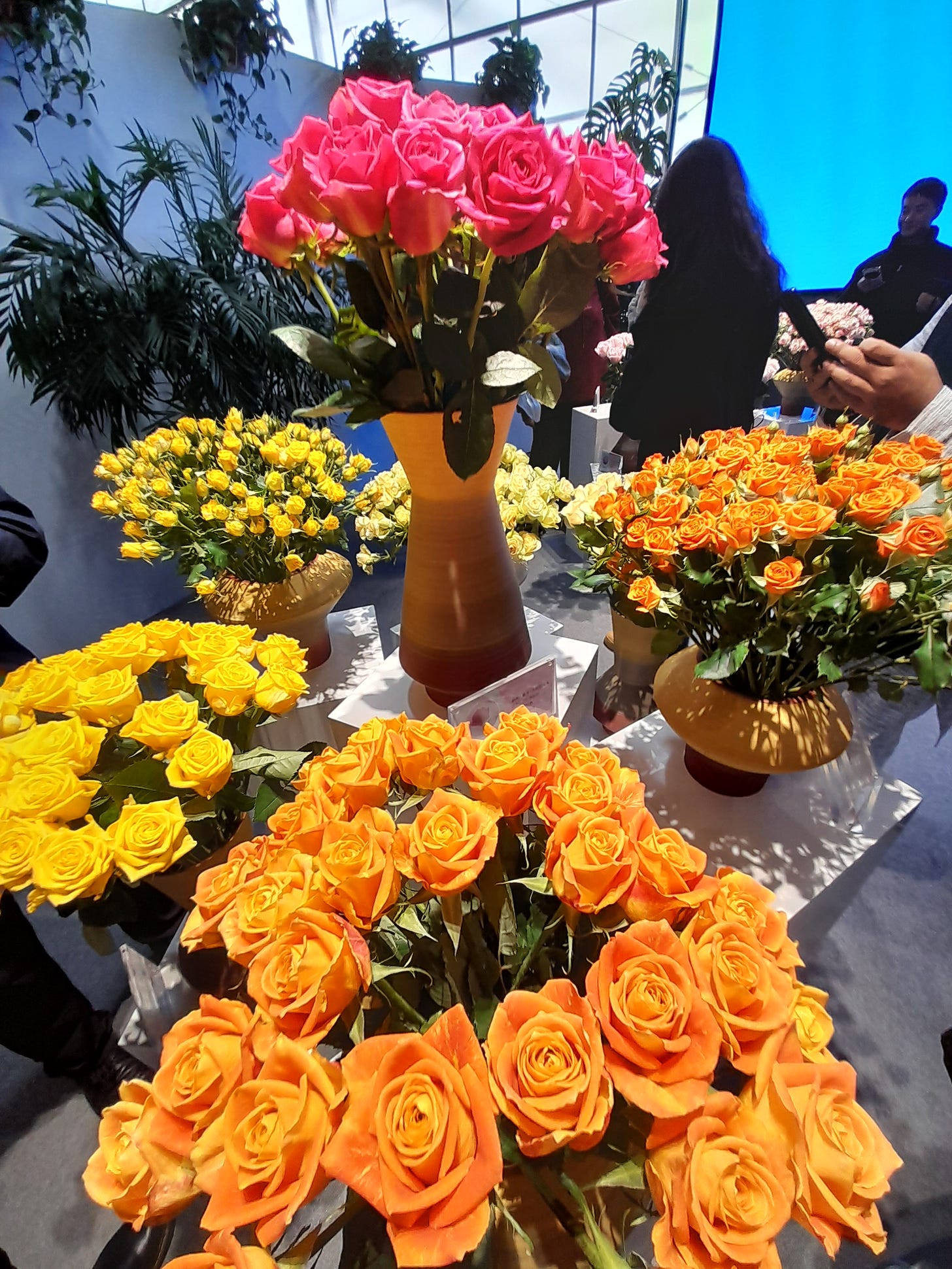A Chinese Odyssey: A Taste of Lanzhou
The capital of the Gansu province is known for its industries, noodles, ethnic diversity and the Yellow River
So we finally made it for the 9 pm flight to Lanzhou from Shanghai. Being our first domestic flight in China, we weren’t sure what to expect, but the professionalism and courtesy we witnessed in other areas in the country was very much there on board China Eastern Airlines.
The three-hour flight from Shanghai revealed the population distribution of China. One can see the endless urbanisation around the great city when taking off and it lasts until Nanjing and then there are hardly any lights for the rest of the flight- China’s western provinces are sparsely populated.
We landed in Lanzhou around midnight and immediately boarded our bus for the city centre. All we could notice at that late hour was a bridge over the Yellow River, one of China’s great waterways that flows for 5,464 kilometres from Bayan Har Mountains to the Bohai Sea.
As soon as we checked in, we were told that the van with our luggage would take another hour to come. Deprived of sleep since I left Bombay, I was willing to happily access my suitcase the next morning and was fast asleep at 2:41 am, when Yogish, our delightful Chinese-speaking friend knocked and brought it to me. He had the same broad smile and twinkle in his eyes that he would at a more earthly hour. When I asked him the next morning what his secret was, he attributed it to the fact that he’s a night owl. That still didn’t explain his equal sense of cheer in the mornings!
When I got off the aircraft in Lanzhou, I felt that nip I usually get when getting off the Delhi-Moscow flight. We were in single-digit territory, weather-wise. My body clock woke me up just before the crack of dawn and I thought I’d head out for a light jog.
This is when I saw some of the rather impressive buildings of the city, among them the university campus, the provincial museum and a mosque. Lanzhou has a nice ethnic mix that includes Han Chinese, Hui Muslims, Mongols, Uyghurs and Tibetans.
Back in the hotel to be the first person at the breakfast buffet, I asked the chef to prepare the famous Lanzhou noodles for me. It was fun watching him make the noodles fresh and the taste did not disappoint me by any means. There was also the fresh apricot juice that I could not get enough of in my four days in Gansu.
Our first stop in Lanzhou was the excellent Gansu Provincial Museum, where we were given a well-conducted tour. It was here that I began the process of mentally piecing together the cultural melange that took place in this part of China. The museum proudly displays artefacts that have an Indian heritage but the highlight of the visit was seeing the Flying Horse of Gansu, a 2nd Century CE bronze sculpture.
Our guide made it a point to show us as many exhibits with an Indian connection as possible, and the future article ideas kept coming to me thanks to her! The gift shop at the museum is an ideal place to get the kind of souvenirs that are not available elsewhere in China. A magnet of the Gansu Horse dons my fridge now, as it does the refrigerator of a close friend in Bombay.
According to our schedule we were supposed to go straight to a Hui restaurant and try some Gansu Muslim cuisine, but as our bus passed a promenade by the Yellow River which was lined with Gingko trees whose leaves had turned a golden yellow. I politely asked our hosts if we could stop the bus and walk on the promenade for five minutes. They went a step further by taking us to a prettier stretch of the riverfront and told us we could have 10 minutes!
On that cold morning, the warm Chinese autumn sun warmed us up as we walked on the promenade and looked at the golden leaves. Just as I walked towards the southern end of the promenade, I saw a saxophonist winding up for the morning. Yogish went and spoke to him and told him I was passionate about jazz. The elderly gentleman smiled and asked me to learn to play the sax!
This walk, brief as it was, filled all of us with a sense of joy. I have always loved autumn, since I first witnessed it as a child in New York. Now, the words of Alexander Pushkin come to mind when I see the foliage.
“Autumn attracts me like a neglected girl
among her sisters. And, to be quite honest,
she is the only one that warms my heart.
She has her good points; whimsically dreaming
and free from vanity, I find her charms appealing.”
When we entered the lobby of the hotel where we would have lunch, the aroma instantly reminded me of Central Asia, the smell of freshly-baked non, of shashlik and other distinct flavours from the crossroads of Indian, Chinese, Russian and Turkic civilisations.
The lunch did not disappoint us by any means. The flavours, aromas and varied tastes kept us happy! In this series I have gone on about the freshness of Chinese fruits, vegetables and ingredients, but each new place has had something delectable for us!
The biggest surprise was a fruit and herbal tea that is known across the former Soviet Union as Tashkent Tea.
After lunch, we drove off to the Lazhou New Area. There is a saying that only one in hundred saplings planted in the city grow into a tree. It is an exaggerated account of how the climatic conditions are not conducive to the growth of trees, but on our way to the new city, we saw innovative ways by which barren hills were being forested. Using slope irrigation, planted deciduous trees were able to survive on these hills.
Being surrounded by hills, Lanzhou in some ways reminded me of Hong Kong.
When our bus arrived in the new city, we were welcomed by its vice-mayor Mr Meng and an incredibly articulate young man from the Foreign Affairs office, Mr Gao. The sheer number of cameras, both still and video, made us feel like some sort of important dignitaries.
Mr Gao, who has a special interest in India and almost moved to the country, was a fine host in this new city. I have written in detail about the city in this article for Open Magazine.
It’s hard not to feel impressed with the impeccable sense of planning that went into the new city. Their greenhouse for roses is like nothing I had ever seen before. The Lanzhou authorities would love for working professionals to move to the new city, which offers all kinds of amenities, and is also being turned into an educational hub.
After we were settled in our new hotel, which occupied a few floors of a government office, I gave a brief interview to the local media. The sense of camaraderie was very strong. Gansu officials want to work with India and explore new areas of partnership. I definitely feel that this is something that should be reciprocated by all means.
We walked around the hotel’s vicinity and in a nice park after dinner. There was the excitement of flying to the Ancient Silk Road town of Dunhuang the next day!



